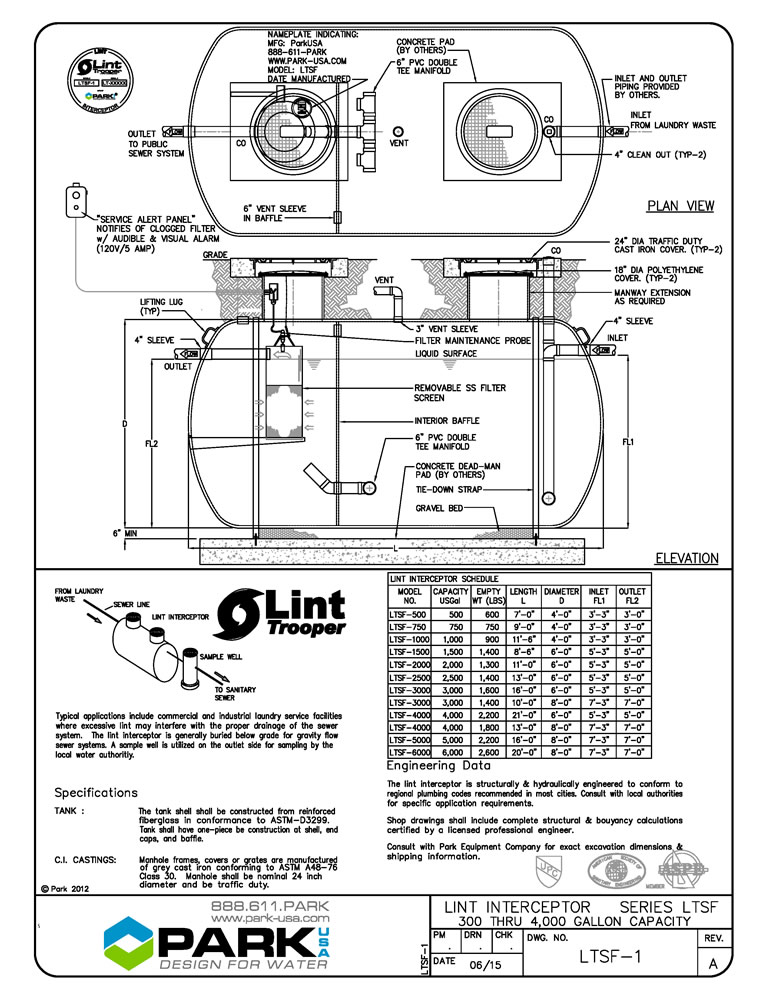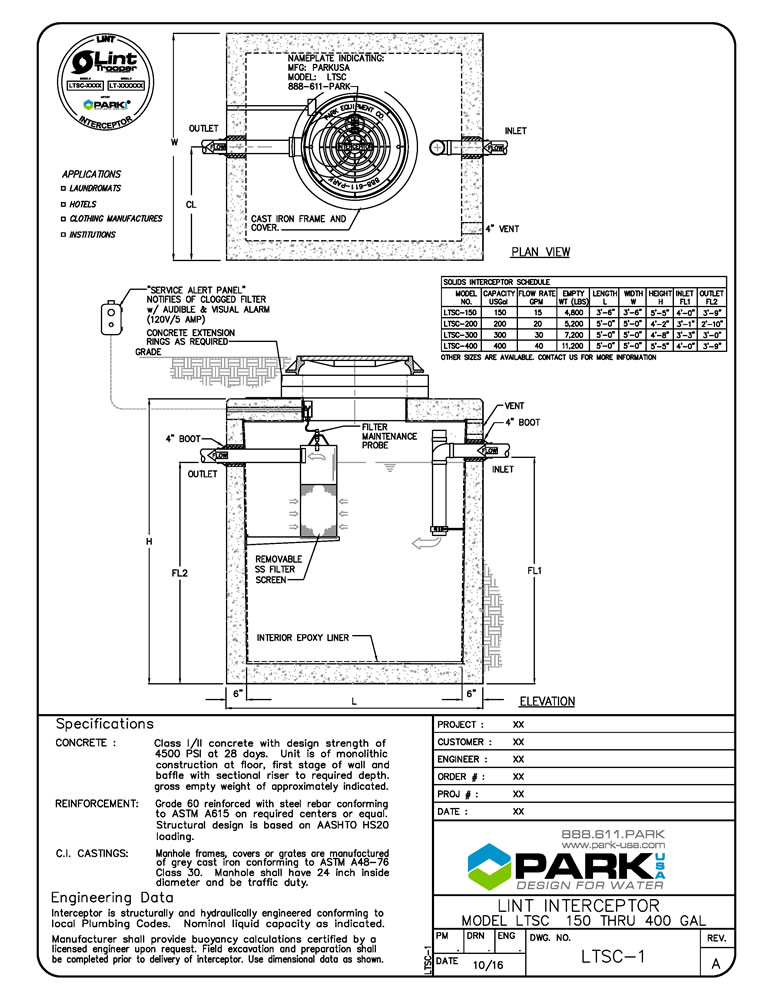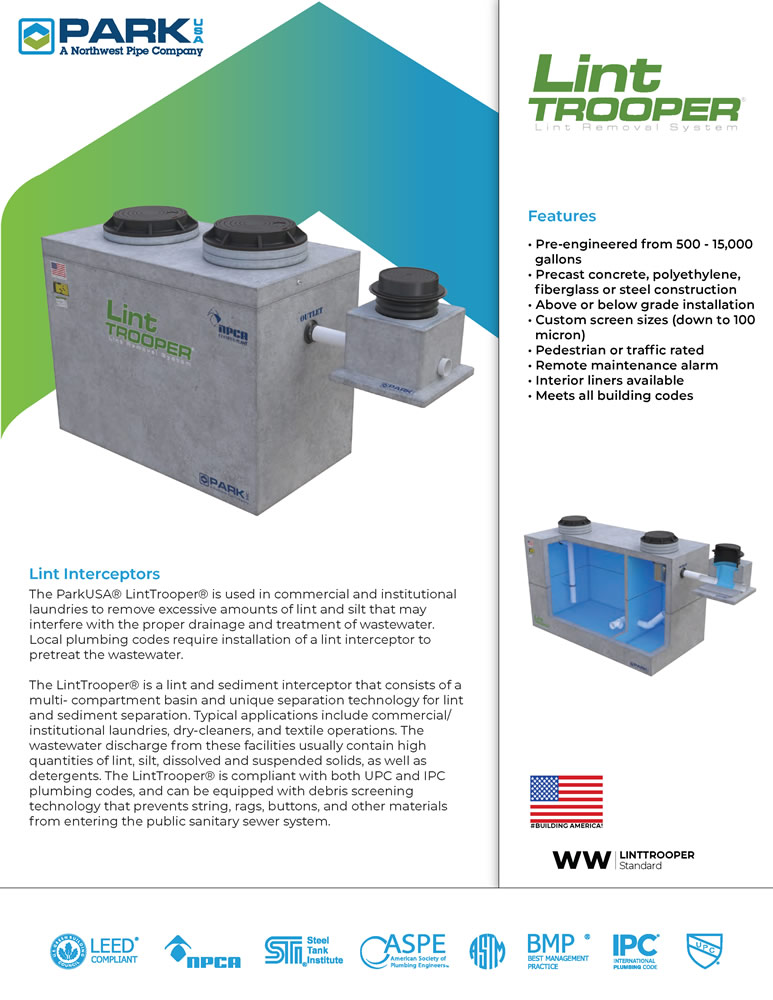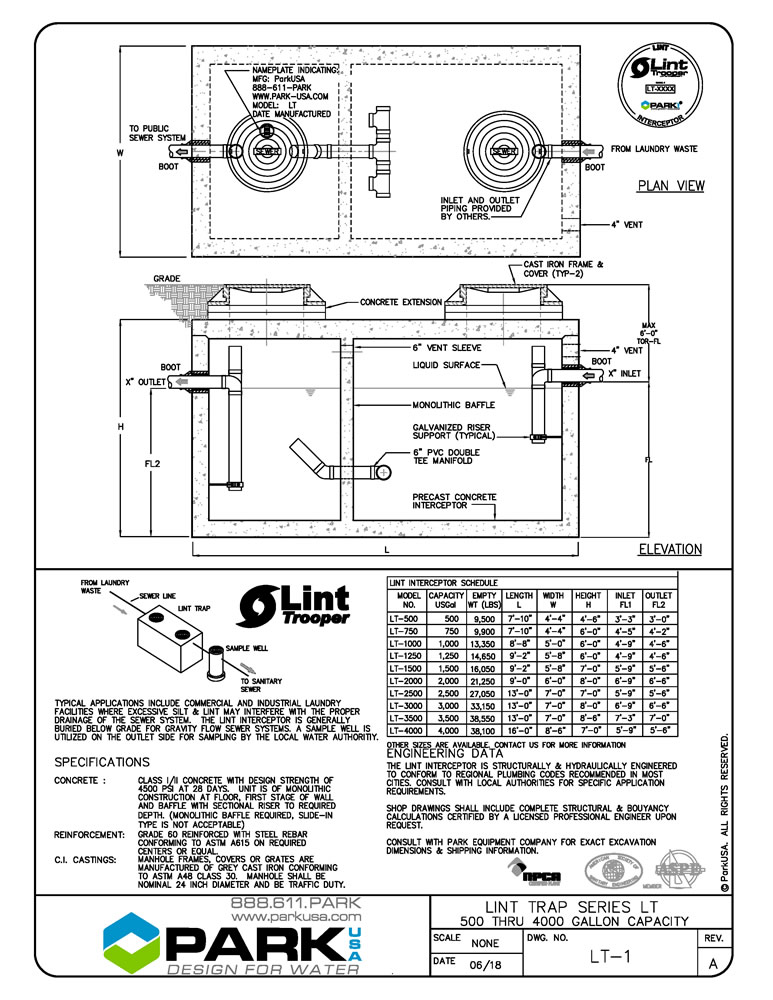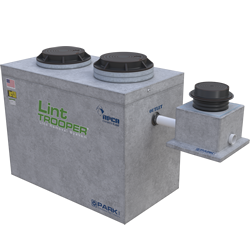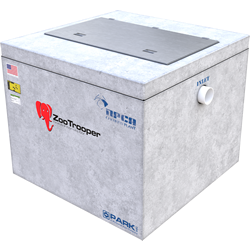
Lint Interceptor
•The ParkUSA® LintTrooper® is used in commercial and institutional laundries to
remove excessive amounts of lint and silt that
may interfere with the proper drainage and
treatment of wastewater. Local plumbing codes
require the installation of a lint interceptor to
pretreat the wastewater.
The LintTrooper® is a lint and sediment
interceptor that consists of a
multi-compartment basin and unique
separation technology for lint and sediment
separation. Typical applications include
commercial/institutional laundries,
dry-cleaners, and textile operations. The
waste-water discharge from these facilities
usually contains high quantities of lint, silt,
dissolved and suspended solids, as well as
detergents. The LintTrooper® is compliant
with both UPC and IPC plumbing codes, and
can be equipped with debris screening
technology that prevents string, rags, buttons,
and other materials from entering the public
sanitary sewer system.
Features
Dolor Sit Amet
- Pre-engineered from 500-15,000 gallons
- Precast concrete, polyethylene, fiberglass
or steel
construction - Above or below grade installation
- Custom screen sizes (down to 100
micron)
- Pedestrian or traffic rated
- Remote maintenance alarm
- Interior liners available
- Meets all building codes
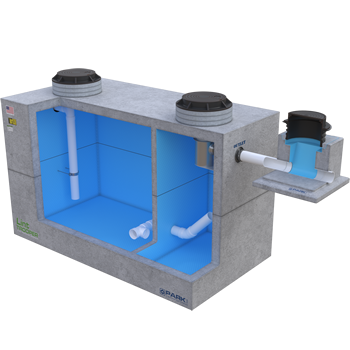
The LintTrooper® is typically located outside the building and
buried below grade, where wastewater can exit the laundry via
gravity flow and enter the interceptor. The interceptor contains
multiple compartments where the lint flocculates and floats to
the surface, and heavier solids sink to the bottom. As the
wastewater enters the interceptor’s first compartment, the water
velocity is significantly reduced, allowing for separation and
fall-out of the lint and sediment. Water travels into the second
compartment through the piping manifold, where further
separation occurs. The water exits through an outlet pipe
positioned between the floating and settling layers. Neutral
buoyant particles are further separated by an internal effluent
screen.
The buried interceptor is typically constructed of precast
concrete, providing years of continuous service.
To ensure maximum performance of the interceptor, a sample
well is recommended downstream of the interceptor. As its name
implies, water samples can be drawn and lab-tested to determine
sediment total suspended solids (TSS) content and interceptor
performance.
Additional Resources
File Preview ⬎




